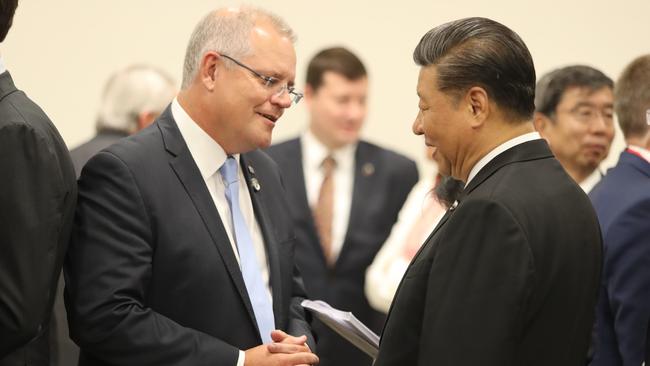
There is no doubt they are linked to Canberra’s call for an independent inquiry into the origins and spread of COVID-19.
But there is a background of other actions by Canberra which Beijing does not like and which form the atmosphere for this unprincipled intimidation.
The imperative here is for the Australian government to hold its nerve, not to back down on any issue of substance, but at the same time to keep the rhetoric as low key and unemotional as possible.
The government, and all its senior ministers in their public statements, have chosen for the moment to accept Beijing’s assertions that these trade actions are indeed trade actions and not geopolitical retaliation for general policies that Beijing doesn’t like.
That is baloney of course, but the government is right to accept this fiction, publicly at least.
The premium here is on firmness of Australian action, not volume of Australian rhetoric.
It would serve the political interests of Beijing for Australia to conflate and inflame the disputes. It is reasonable for the government to take Beijing at its word and simply point out the manifest unfairness and baseless nature of its trade actions.
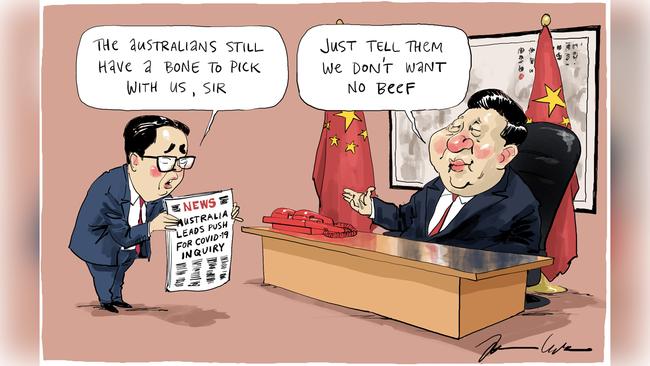
The Communist Party of China runs a socialist state in which foreign investment is strictly controlled, access to its domestic market strictly controlled, many Chinese companies given credit below cost and subsidised to capture strategic market share abroad.
For that system to accuse Australian agriculture, renowned as one of the least subsidised sectors in the world, of “dumping” — selling products below their cost of production — and other unfair trade practices, is ludicrous.
It is so absurd as perhaps to qualify as a rare example of communist humour.
Beijing is in an extremely aggressive mood all round the world, with military actions in the South China Sea and the East China Sea, utterly implausible conspiracy theories against America and at times bizarre diplomatic aggression in Europe.
This is a deliberate decision by the Chinese government to go down an ultranationalist path.
Many nations have been subjected to Chinese trade retaliation in the recent past.
Beijing has generally been slow to do this kind of thing with Australia, partly because the two-way trade relationship is so beneficial to China, as well as to us.
It is also possibly the case that when Beijing felt it could make bigger, sometimes covert, political gains within Australia it was a little more restrained.
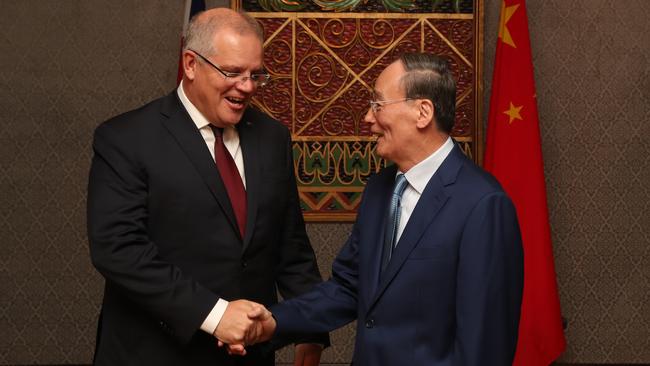
There is a serious possibility that this trade intimidation marks a stage of punishment and hostility which Beijing now intends to inflict on Australia for some time.
No Australian government is perfect but there is absolutely nothing in all this over which the Morrison government deserves serious criticism.
Beijing has a lot of trouble understanding democracies but the Morrison government is assuredly not responsible for the tone on China taken by non-government commentators.
Similarly, it is too simplistic a syllogism to say that good relations are in Australia’s interest, relations are currently bad, therefore the Australian government must be at fault.
Not only is this logically wrong, it grants all power to Beijing to determine when an Australian government is at fault.
The Morrison government’s instinct: maintain the substance of your position; protect Australia’s interests; use neutral language where possible, is right.
That approach gives you the best chance of safeguarding the national interest. It doesn’t guarantee success. Neither does any other approach.



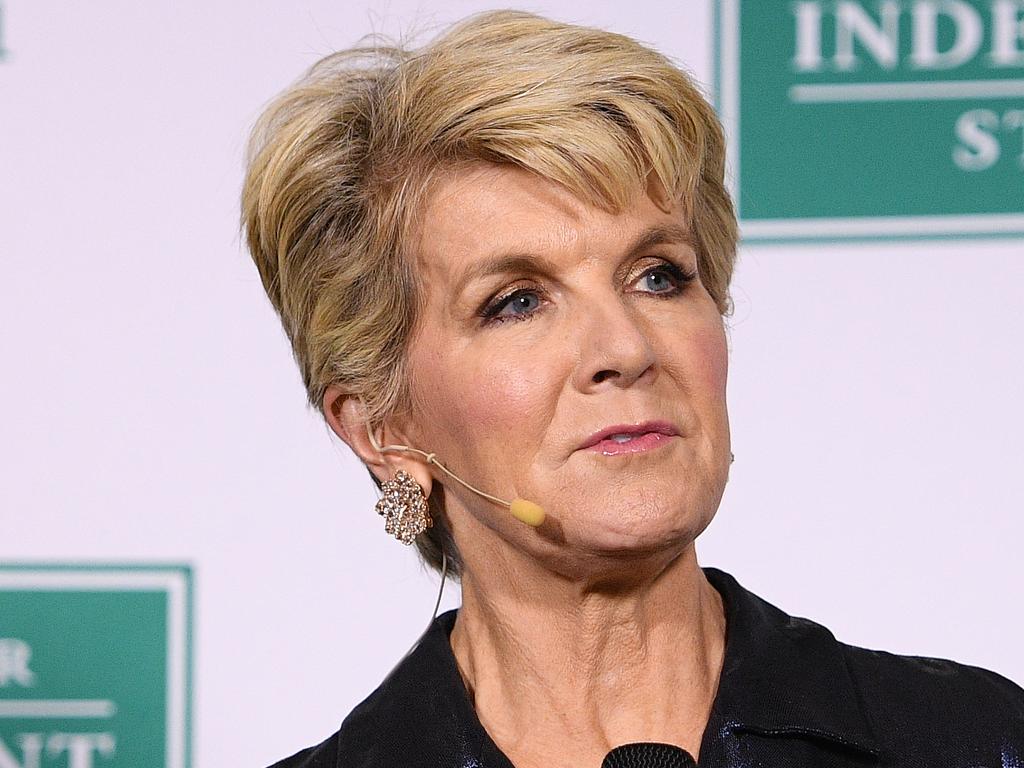
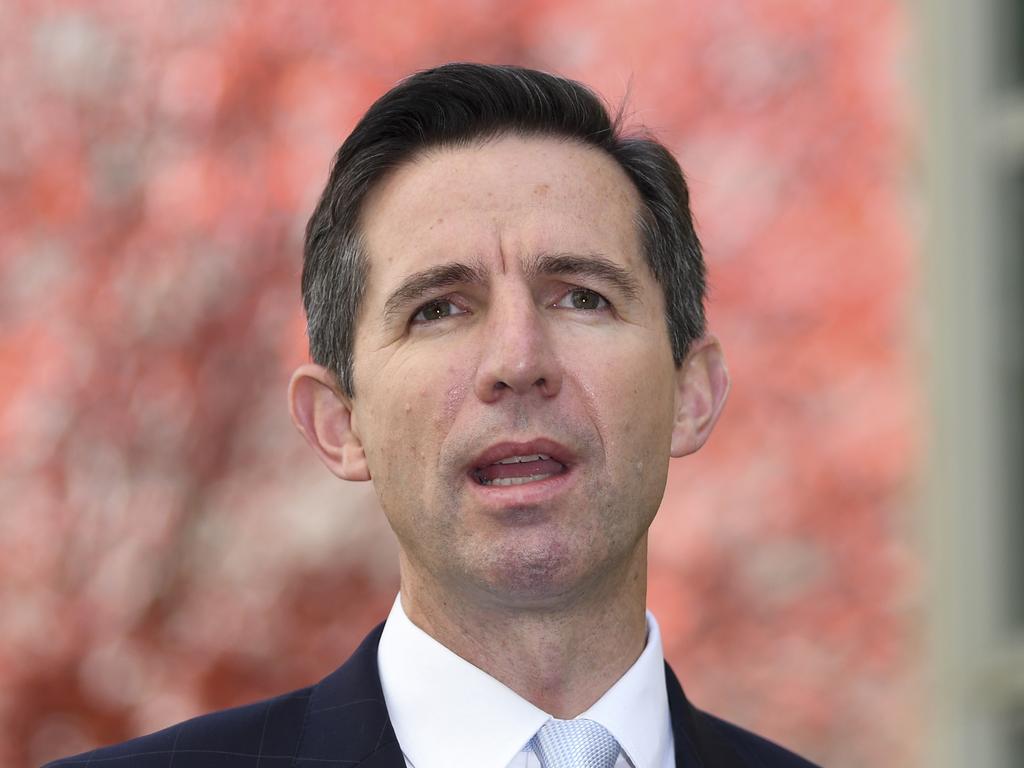
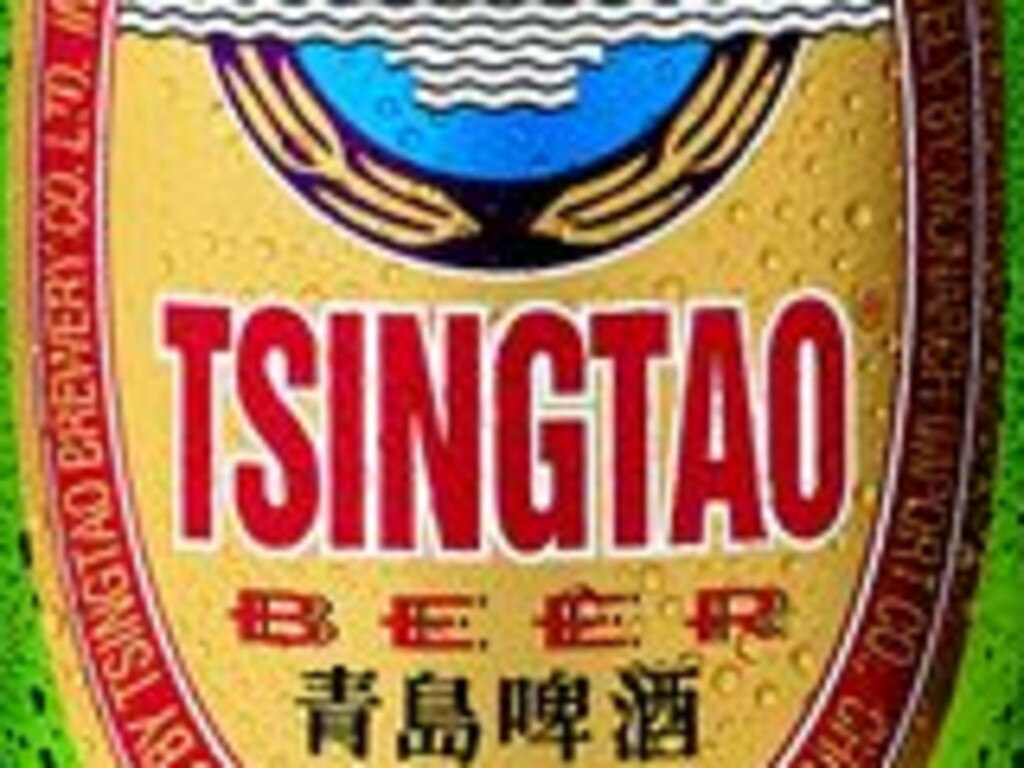


Beijing’s decision apparently to destroy our barley exports to China, and to cut our beef exports there, constitutes naked economic coercion and intimidation.